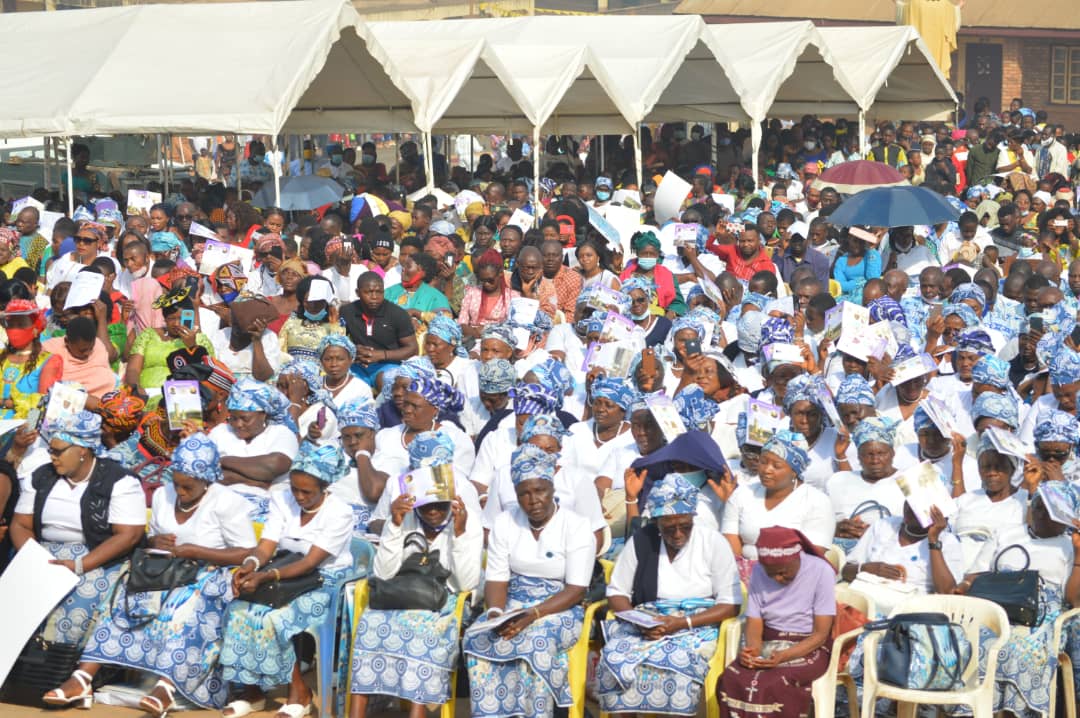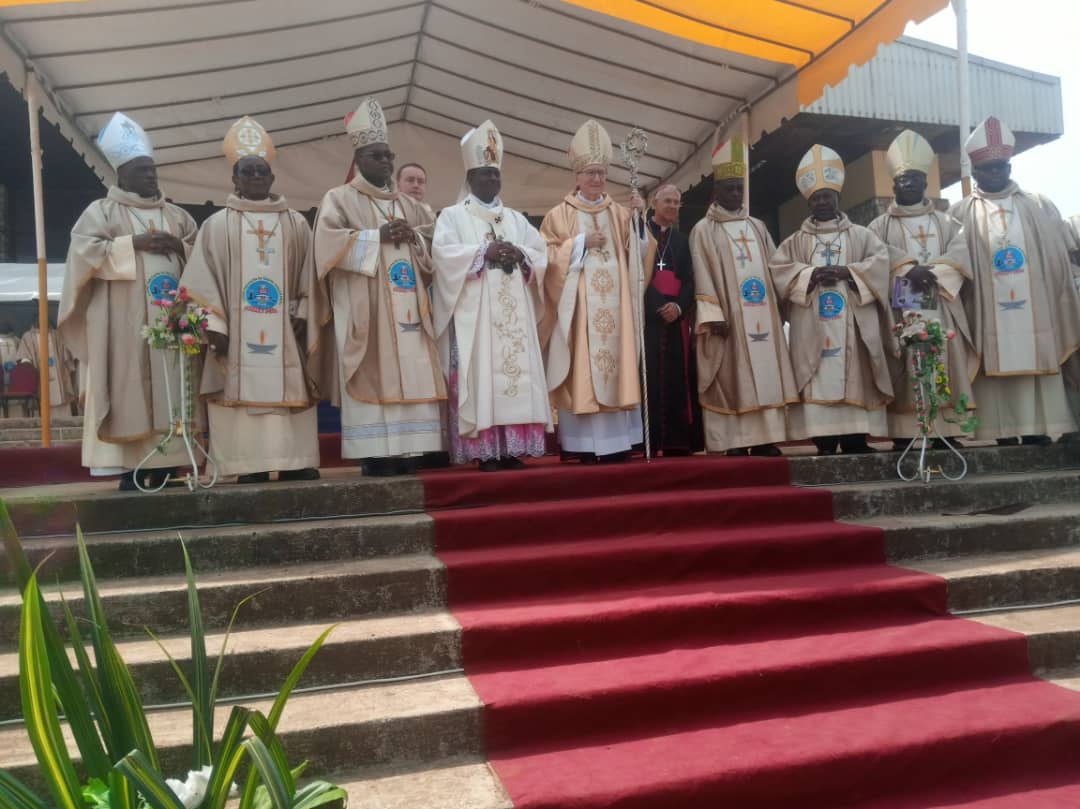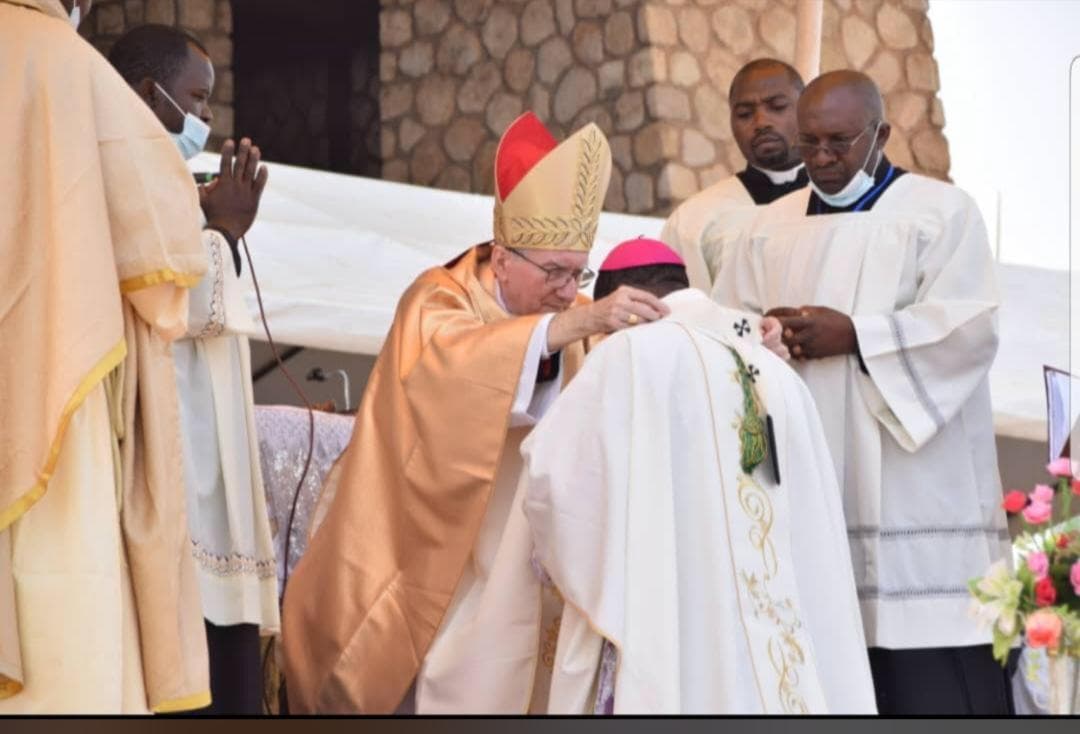YAOUNDÉ, Cameroon – On a visit to Cameroon, the Vatican’s top diplomat has called for dialogue as “the best way to solve conflicts, and misunderstandings.”
Cardinal Pietro Parolin was speaking Sunday in Bamenda, the capital of Cameroon’s troubled North West region. The Archdiocese of Bamenda is the metropolitan for the entire Anglophone region of Cameroon, which also includes the South West region of the country.
The population of the two English-speaking regions make up about 20 percent of the country’s total, and traditionally use a school system based on England as well as the common law legal system. The majority of the country is French-speaking.
In 2016, a protest by Anglophone lawyers and teachers over attempts to change the education and legal systems by the central government quickly degenerated into an armed rebellion with many English speakers demanding for outright independence, with separatists declaring their new country was called “Ambazonia.”
RELATED: Top Vatican diplomat visits Cameroon in search of ‘reconciliation and peace’
The conflict has killed at least 3000 people, and left over 700,000 others displaced, according to the United Nations.

“I am well aware of the difficulties you have experienced in recent years and are still experiencing,” Parolin said.
“In the difficult situation in which you find yourselves living, you are experiencing up and close the power of evil that acts in the world. Unfortunately, there is more news of violence, divisions and fratricidal struggles that afflict this beloved land,” the cardinal continued.
Parolin prayed that the Lord could console the suffering Anglophone population of Cameroon, “in particular those who have been victims of violence, or who have lost friends and loved ones in this crisis.”
“We are all responsible for peace. All the actors of society are responsible, from the smallest to the biggest person. No one can feel exonerated from the struggle against evil,” the cardinal continued.
“This is the challenge that faces you today, that finally, violence may be put down, and that peace and reconciliation may reign within us and around us. Violence never solves problems. It only creates more problems. Peace is a journey of hope, dialogue and reconciliation,” Parolin said. “Dialogue therefore is the best way to solve conflicts, and misunderstandings,”
Parolin was in Bamenda to bestow the pallium – the liturgical vestment of a metropolitan archbishop – on Archbishop Andrew Nkea Fuanya, who was appointed to the archdiocese in February 2020.
RELATED: New archbishop says English-speaking Cameroonians are ‘tired of war’
The ecclesiastical province includes the dioceses of Buéa, Kumba, Kumbo, and Mamfe.

During the Mass, Fuanya spoke of how the conflict has affected the people in Cameroon’s North West and South West regions.
“Many of our people have suffered a lot from a situation they did not create. And thousands are either internally displaced or have escaped as refugees. Businesses are shut down and for about four years, our children were not allowed to go to school. Children have been used as bait for political struggle,” the archbishop said.
“Many priests, religious, bishops and lay people of this province have been beaten, harassed or even killed in this conflict. And yet, the Church continues to carry the Gospel message as a light of hope to a traumatized people,” he continued.
Nkea said that Parolin’s viist was a comforting presence for a traumatized people, noting that the Vatican envoy had stepped “on the soil of Bamenda that has drunk the blood of many of our children.”
“We in Bamenda can address ourselves in the Messianic words of the Prophet Isaiah; a people that walked in darkness have seen a great light. For those who live in the land of deep shadow, a light has shone. You have made their joy increase. They rejoice in your presence as men rejoice at the harvest time, as men are happy when they are dividing the spoils,” the archbishop said.
RELATED: Cardinal Parolin visits home for street children during visit to Cameroon
“We are happy because in this time of crisis, we see you as a messenger of peace. We see you as an ambassador of reconciliation. We see you as a promoter of justice. We see in you the presence of the Holy Father, Pope Francis himself among us,” Nkea said, to thunderous applause.
“Even when the Holy Father says nothing, his presence is a consoling presence. His blessings bring peace and his words come with an anointing on the wounds of those who are bleeding,” Nkea added.
“We are convinced that your coming to Bamenda will be like the rain that never falls without watering the ground. So too you will not leave us to continue fighting, but you will leave us as people who will start loving one another,” he concluded.















